I am so happy to welcome former Metropolitan Opera violinist Erica Miner to Tell Me Your Story, for what a story she has! Do you wonder why authors choose to write what they write? Erica is a perfect example of how life affects arts. Since retiring from the Met, Erica is now an award-winning Seattle-based author, lecturer, arts journalist and screenwriter. She balances her reviews and interviews of real-world musical artists with fanciful plot fabrications that reveal the dark side of the fascinating world of opera in her Julia Kogan Opera Mystery series. The first, Aria for Murder, was a finalist in the 2023 Eric Hoffer Book Awards and Chanticleer Independent Book Awards; the second, Prelude to Murder, was a Distinguished Favorite in the 2024 NYC Big Book Awards. Book 3, Overture to Murder, was released in Oct. 2024. Erica has presented a solo Author Spotlight at Bouchercon 2023 and seminars at other well-known writers conferences and libraries on the west coast. She lectures on music and opera for the Seattle Symphony, Osher Lifelong Learning Institute, and Wagner Societies on both coasts and in Australia.
Opera Can Kill You
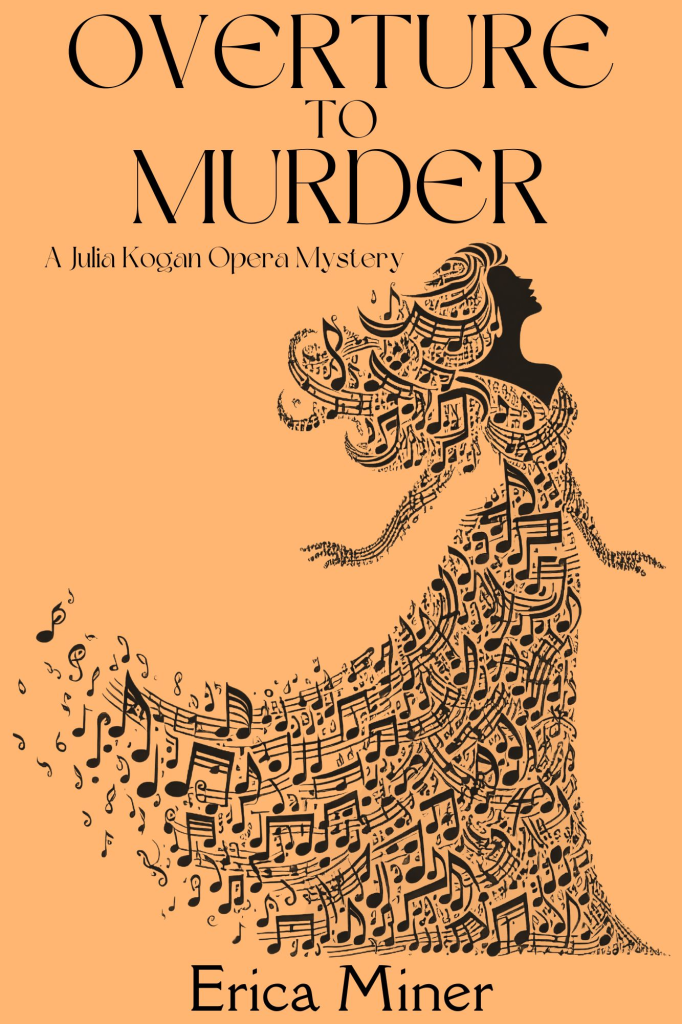
In my 21 years as a violinist with the Metropolitan Opera in New York, I witnessed some extraordinary events, both onstage and off, all of which became grist for my writing mill when I took up writing in the mystery genre.
But I’m getting ahead of myself. I actually began writing before I started playing the violin.
When I was growing up in Detroit (a hundred years ago), I heard classical music wafting through our house on a constant basis. My Ukrainian immigrant parents brought with them a deep love and understanding of this art form, and as a young child I benefited from it. My father was my first violin teacher. My mother, the opera fanatic in the family, faithfully listened to the Met Opera radio broadcasts every Saturday afternoon. It all filtered into my youthful brain.
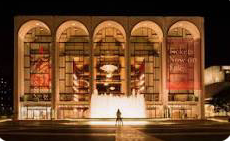
I also was fortunate that in Detroit back then there was an excellent public school system with a number of outstanding afterschool programs. At about age 7 or 8, I was placed in one of these programs for Creative Writing. I’m not sure why, though I imagine some teacher glimpsed a spark of that in me, and I don’t recall much of what I wrote such a long time ago.
What I do remember, though, is loving the entire process of creating characters and plots and weaving them all together to tell stories. I discovered to my delight that I loved telling stories. I still do. That was when my deep love and passion for writing was first created in my soul.
Shortly afterward I started studying the violin, and all bets were off.
Those of you who have played violin, especially as a kid, can relate to the fact that it is all- consuming and requires total commitment and devotion, to the exclusion of most outside interests. For me, that meant my writing played second fiddle to my violin studies. But I never stopped writing. In high school, I journaled every day. Those journals ultimately became the basis for one of my first published novels. Even while at the Met I took writing classes whenever I could fit them into my schedule. When it was time to retire from the Met and its grueling demands, I knew what my next creative outlet would be. I went back to my writing. I’ve been writing ever since.
But while I was at the Met, I took note of the nefarious goings-on backstage and observed that oftentimes what goes on away from the stage can be more dramatic than what happens on the stage.
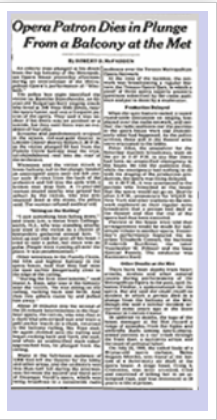
Example: one day in the middle of a live performance of Verdi’s Macbeth (I know, the dreaded word), broadcasting to thousands if not millions of people across the US, some guy in the audience decided to commit suicide by taking a flying leap off the balcony. (I’m not making this up!) Fortunately for everyone else, he waited until the intermission to do the deed. It had to have been the longest intermission in the history of the Met, since—ugh—they had all that cleanup to do.
That was an offstage drama. But on a different occasion, during a premiere of a first-time opera, something occurred onstage that was not supposed to be part of the show. The stage director, in his infinite lack of wisdom, had this poor tenor singing from the top of a 20-foot ladder. Seriously? The Met stage is already 8-10 feet high; 20 feet above that seemed a recipe for disaster for a guy who had a fear of heights. Sure enough, at the first performance of this opera, the tenor singing from the top of the sky-high ladder in front of 4,000 people sang a few lines. Then he collapsed (from a heart attack, no surprise), and plunged to his death! But here’s the kicker. The last words he sang were, “You can only live so long.”
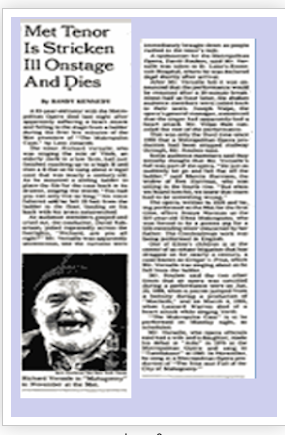
You can’t make this stuff up.

After that, my wicked imagination kicked in. The Met’s atmosphere, the people who populated it, and the potential for danger and catastrophe seemed too tempting to pass up. I could not resist writing a murder mystery that took place there. I created a protagonist, young neophyte violinist Julia Kogan, loosely based on myself when I first started out at the Met, who somehow becomes entangled in a murder investigation in her new environment and ends up the target of a killer. Aria for Murder was born.

When one reader strongly suggested I write a sequel, I was intrigued: why not write about the mischief and mayhem that take place in other opera houses? Soon I was writing a series. The next book, Prelude to Murder, was set at Santa Fe Opera in the ghost-infested desert. San Francisco Opera expressed interest in another opera mystery. I was off to research the fascinating history of the eerie opera house in the City by the Bay. The result was my latest release in the series, Overture to Murder.
The atmosphere of an opera house is for me the richest possible setting for a murder mystery. Theatres are accident-prone environments in general, but add to that the volatile personalities of wannabe opera stars, detestable divas, and snarky stagehands, not to mention the 100 neurotic musicians in the orchestra pit, and you have a formula for ongoing jeopardy and conflict. Opera stories are some of the bloodiest, most violent ever written. I weave real-time performances of these operas these into the plots of my books. Plus I get to kill off all the people who made my life miserable when I was at the Met.

What could be better?
_______________
Click here for the buy link to Erica’s books.
Erica’s website: https://www.ericaminer.com
Award winning Author, Screenwriter, Lecturer, Journalist
Member: Mystery Writers of America
International Thriller Writers
Music Critics Association of N. America
Pacific Northwest Writers Association


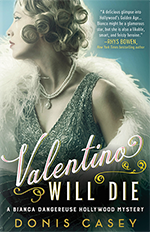
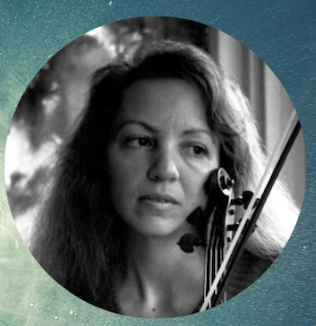

More Places to Go
Donis on Facebook
Type M for Murder